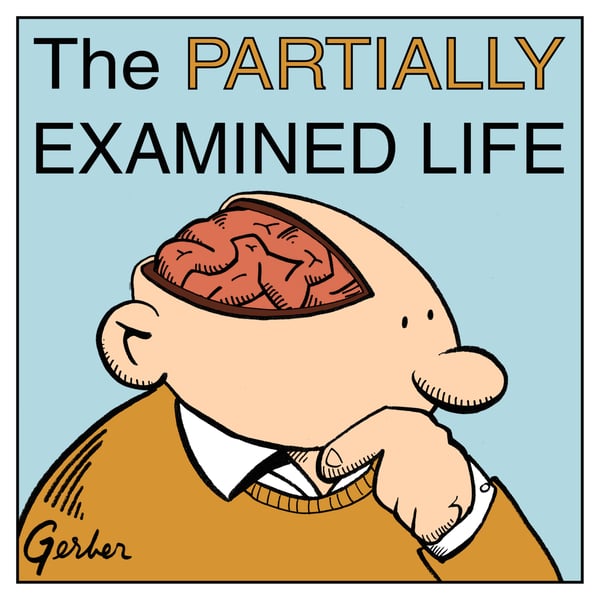Ep. 358: Max Stirner's Egoism (Part Two)
The Partially Examined Life Philosophy Podcast
Mark Linsenmayer
4.6 • 2.3K Ratings
🗓️ 13 January 2025
⏱️ 42 minutes
🧾️ Download transcript
Summary
Continuing on The Ego and Its Own, focusing now on the sections "The Owner" and "My Power." Stirner lets us know that his egoism ("ownness") is not compatible with liberal egalitarianism, which he sees as just a continuation of the Christian project of perfecting humanity.
Get more at partiallyexaminedlife.com. Visit partiallyexaminedlife.com/support to get ad-free episodes and tons of bonus discussion.
Sponsor: Learn about St. John's College at sjc.edu/pel.
Transcript
Click on a timestamp to play from that location
| 0:00.0 | You're listening to the partially examine life. |
| 0:09.6 | Welcome to part two of our discussion of Max Stirner's The Ego and Its Own from 1844. |
| 0:16.7 | Last time we talked about the section of the book called oneness and in particular his critique of freedom |
| 0:26.5 | and the concept of rights and this episode we're going to start with section in the second part |
| 0:34.0 | of the book called the owner and maybe we'll get into a subsection of that |
| 0:38.9 | called My Power. In this introduction to this section called The Owner, the argument is that |
| 0:45.7 | oneness is not consistent with liberalism. Liberalism, and he's thinking in particular here |
| 0:53.3 | of the concept of equality, where your equality under liberalism, and he's thinking in particular here of the concept of equality, where your |
| 0:56.3 | equality under liberalism is recognized insofar as you are man with a capital M, right, |
| 1:02.8 | insofar as you are human, but it doesn't really recognize you as unique or real or bodily or as a particular individual. |
| 1:13.6 | It just treats you as a concept or as the species that's the general essence of humanity. |
| 1:20.0 | That's what's equal between different human individuals. |
| 1:25.2 | And that, he says, makes brotherly love very easy because it's not, you don't have to |
| 1:30.8 | love Seth in particular to be a good Christian. |
| 1:34.6 | You just have to love the man in Seth, the human essence in Seth. |
| 1:41.7 | And so you can see how that Christian idea, if it's accurately, being accurately |
| 1:47.9 | represented, becomes a basis for liberalism, right? The kind of the thing that we extend to people |
| 1:55.0 | when we give them rights, we do it not out of, you know, because we like that person in particular or love that person in particular. |
| 2:03.6 | We just do it because that's what as a human being they deserve. |
| 2:07.6 | It is interesting. So in that way of framing it, you know, the problem with liberalism is it's another kind of religion and is it's denying the particularity in any individual as a great |
| 2:22.7 | flaw from Sterner's point of view. And so what we were talking about earlier as a hallmark of |
| 2:28.0 | liberalism is that liberalism is designed or intended at, to maximize individual flourishing. |
... |
Please login to see the full transcript.
Disclaimer: The podcast and artwork embedded on this page are from Mark Linsenmayer, and are the property of its owner and not affiliated with or endorsed by Tapesearch.
Generated transcripts are the property of Mark Linsenmayer and are distributed freely under the Fair Use doctrine. Transcripts generated by Tapesearch are not guaranteed to be accurate.
Copyright © Tapesearch 2025.

